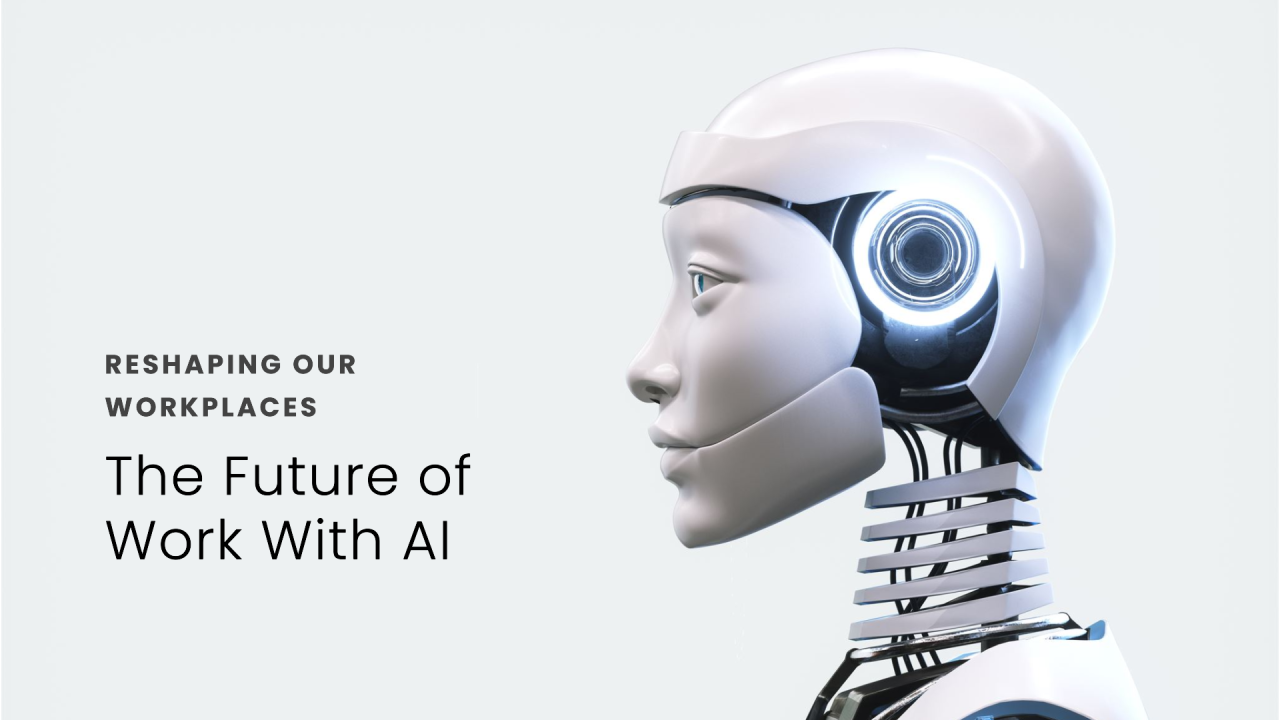Introduction: The AI Revolution in the Workplace
Imagine showing up to work and having an AI assistant already finish your emails, schedule your meetings, and analyze your daily reports. Sounds futuristic? Not anymore. Artificial Intelligence is not just a buzzword—it’s transforming the way we work, live, and think. From automating mundane tasks to helping make smarter business decisions, AI is undeniably reshaping the future of work. Let’s dive into how this transformation is happening and what it means for you.
Understanding AI and Its Capabilities
What is Artificial Intelligence?
AI refers to machines or software mimicking human intelligence. It includes tasks like learning, reasoning, problem-solving, and language understanding.
Different Types of AI and Their Functions
-
Narrow AI: Focused on one task (e.g., virtual assistants like Siri)
-
General AI: Hypothetical machines with human-level cognition
-
Machine Learning & Deep Learning: Subsets that enable AI to learn from data patterns
Key Technologies Powering AI
-
Natural Language Processing (NLP)
-
Computer Vision
-
Robotic Process Automation (RPA)
-
Predictive Analytics
AI in the Modern Workplace
How AI Is Already Being Used in Work Environments
AI is helping with:
-
Automating data entry
-
Chatbots for customer service
-
AI-driven marketing campaigns
-
Smart inventory management
Industries Leading the AI Transformation
-
Healthcare
-
Finance
-
E-commerce
-
Manufacturing
-
Real estate
Automation and Job Transformation
Automation vs. Augmentation: What’s the Difference?
-
Automation replaces human jobs with machines.
-
Augmentation enhances human work, making it faster and more efficient.
Jobs Most Affected by AI
-
Repetitive roles like data entry clerks, telemarketers, and cashiers.
-
Routine-heavy jobs in transportation and logistics.
New Job Roles Emerging from AI
-
AI ethicist
-
Machine learning engineer
-
Prompt engineers
-
AI business strategist
Enhanced Productivity and Efficiency
AI Tools That Make Work Smarter
Think of AI like your digital Swiss Army knife:
-
Grammarly for writing
-
ChatGPT for ideation
-
Notion AI for organization
Streamlining Repetitive Tasks
Why waste time on repetitive tasks when AI can handle:
-
Scheduling
-
Basic customer queries
-
Generating reports
Improving Decision-Making Through AI
AI can analyze tons of data quickly to help you:
-
Predict customer behavior
-
Forecast sales trends
-
Optimize marketing strategies
Human-AI Collaboration
The Power of Humans + Machines
It’s not about man vs. machine. It’s about working with the machine. Think Iron Man and his suit—together, they’re unstoppable.
Real Examples of AI Assisting Professionals
-
Doctors using AI to detect early signs of cancer
-
Journalists using AI to summarize breaking news
-
Architects using AI tools to visualize designs
AI and Remote Work
Virtual Assistants and Collaboration Tools
Tools like Zoom with AI features or AI-powered CRMs are making remote work seamless.
How AI Supports Work-from-Home Culture
-
Virtual onboarding for new hires
-
AI-generated performance reports
-
Chatbots for 24/7 support
Ethical Concerns and AI in the Workplace
Bias and Fairness in AI Decisions
AI is only as fair as its data. Biased input = biased output. That’s a major concern in hiring and promotions.
Surveillance and Employee Privacy
AI can monitor productivity—but where’s the line between tracking performance and invading privacy?
Responsible AI Usage
Companies must implement AI ethically and transparently with fairness, accountability, and oversight.
Skill Development and the AI-Ready Workforce
Why Upskilling is Critical
The AI revolution isn’t replacing everyone—but it is demanding new skills.
Top Skills Needed in the Age of AI
-
Data literacy
-
Critical thinking
-
Emotional intelligence
-
Tech adaptability
How Companies Are Supporting Learning
Many are offering:
-
Online training programs
-
AI literacy workshops
-
Sponsored certifications
AI’s Role in Hiring and HR
Smart Recruitment and Candidate Screening
AI can scan thousands of resumes in seconds—spotting top talent faster than any human.
AI for Employee Engagement and Retention
From analyzing satisfaction surveys to predicting turnover, AI is making HR more strategic.
Small Businesses and AI Adoption
Affordable AI Tools for Startups
Free or low-cost tools like:
-
ChatGPT
-
Canva AI
-
Pictory for video editing
-
Copy.ai for content
How AI Levels the Playing Field
Small businesses can now compete with big corporations thanks to accessible, scalable AI.
Challenges in Implementing AI at Work
Resistance to Change
People fear the unknown. Training and communication are key.
High Cost and Infrastructure Needs
Setting up AI systems can be costly—but the long-term ROI is worth it.
The Future Work Environment
Hybrid Work Powered by AI
AI ensures flexibility—whether you’re in the office, at home, or traveling.
Predictive Workflows and Smart Offices
Imagine walking into an office that adjusts lighting, books your meetings, and tracks your wellness.
Governments, Regulations, and Policies
Laws Around AI Usage in Workplaces
From the EU’s AI Act to California’s data laws—regulations are catching up.
Global Efforts Toward Ethical AI Use
UNESCO, OECD, and others are working on global ethical frameworks for AI.
Conclusion: Embracing the AI Future Responsibly
AI isn’t coming—it’s already here. The future of work is smarter, faster, and more collaborative. But with great power comes great responsibility. It’s not about humans vs. machines—it’s about how we grow together. To stay ahead, we must embrace AI with awareness, ethics, and a constant willingness to learn.
FAQs
1. Will AI replace all jobs in the future?
Nope! AI will transform jobs, not just replace them. Many new roles will emerge alongside automation.
2. What are the top industries being disrupted by AI?
Healthcare, finance, retail, manufacturing, and education are leading the charge.
3. Can small businesses afford to implement AI?
Absolutely! Many AI tools today are affordable—or even free—for startups and solopreneurs.
4. How can I prepare myself for an AI-driven future?
Start by learning digital skills, improving adaptability, and staying curious about new technologies.
5. Is AI in hiring fair and unbiased?
It can be—but only if trained on diverse, balanced data. Companies must monitor algorithms closely.
Read more Article About Technology
